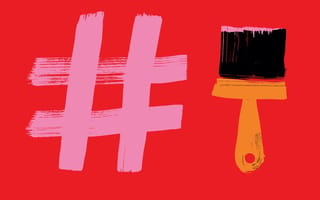The creator economy refers to the ecosystem of individual creators — think artists, influencers, podcasters, TikTokers and YouTubers — who build businesses around their creative endeavors and personal brands, earning income from the audiences they amass and the advertisers they partner with.
These creators may not make a living in a traditional way, but they still need tools to do their jobs — tools that help them create and distribute content easily, manage administrative work efficiently and grow and monetize their audiences independently.
Creator Tools to Know
- Patreon
- Substack
- Linktree
- Teachable
- Gumroad
- Thinkific
- Kajabi
- Ko-Fi
- ConvertKit
Stepping up to fill that need is a range of startups and companies whose goal is to build software tools and platforms that help creators do what they do best — create.
Here are 16 of these companies you should know.
Content Creation and Creator Economy Startups
Type of content creation tool: Livestream video
Caffeine allows people to broadcast live video and interact with audiences in real time. Creators can monetize by selling digital items to their followers, and they can join Caffeine’s growth programs to expand their fan bases even more. The company launched its product in 2016, and has since earned a $600 million valuation (plus a partnership with Drake).
Type of content creation tool: Landing page builder
Linktree allows creators to house their social handles, retail links and blog content in one easy-to-use page that can be linked to in social media bios, email signatures and even QR codes. Founded in 2016, the company is valued at nearly $1.3 billion.
Type of content creation tool: Online courses / video
Since launching in 2010, Kajabi has been used by more than 50,000 creators to build and sell online video courses to over 60 million students, according to its website. The platform positions itself as an all-in-one software solution that can handle a creator’s blogging, email, marketing automation and digital sales and delivery.
Type of content creation tool: Online courses / video
More than 100,000 creators have used Teachable to build, sell and manage online courses. How it works: Instructors pay Teachable a monthly or yearly subscription fee to use the platform for creating, hosting and selling their classes. They can also use it to sell digital downloads and coaching services. Founded under the name Fedora in 2013, the startup was acquired by Hotmart in 2020.
Type of content creation tool: Community building platform
Circle bills itself as “the modern community platform for creators” — it’s a place to publish content, host discussions and cultivate a membership-based community. The platform lets creators customize the look and feel of their spaces. The company itself was founded in 2019, and both its co-founders first worked at the edtech startup Teachable.
Type of content creation tool: Financial services
Karat is a credit card company that looks at your follower count, not just your FICO score, for determining your credit limit. The startup began in 2020 with a credit card specifically targeted for creators and influencers. The company also offers bookkeeping and tax services for creators to help them avoid audits and ensure compliance with federal and state tax laws.
Type of content creation tool: E-commerce
Gumroad allows creators to sell digital products directly to consumers. Artists, authors and even movie studios have used Gumroad to sell digital content, process payments and communicate with audiences. The company was founded in 2011 and is headquartered in San Francisco.
Type of content creation tool: Online courses
Thinkific is a software platform that lets instructors create, market and sell online courses — whether it’s for guitar lessons, a cooking class or a crash course in philosophy. Instructors can use it to design their own websites too. Headquartered in Vancouver, Thinkific has about 100 employees and has raised $25 million to date.
Type of content creation tool: Community building platform
Podia launched in 2014 to help tutors manage their businesses online. It has since pivoted to become a platform for creators to sell memberships, video courses, webinars and digital downloads, billing itself as an “all-in-one digital storefront.” Podia also offers payment portal integration, chat messaging and email marketing tools.
Type of content creation tool: Podcast subscriptions
Libsyn’s Glow membership program is trying to make it easy for podcasters to accept support directly from their listeners. Creators use Glow to build subscription packages and put content behind paywalls for audiences to unlock when they want more. The company started in 2019 and raised $2.3 million in seed funding.
Type of content creation tool: Membership platform
Patreon is a platform used by creators to build online communities and set up paid subscriptions to support their work. Memberships typically work in tiers, with higher levels of support getting access to more content and perks. Patreon started in 2013 and is now used by over 200,000 creators selling subscriptions directly to more than six million patrons. The company is worth over $1 billion.
Type of content creation tool: Podcast subscriptions
Supercast startup allows podcast creators to monetize their content through memberships. With Supercast, creators can paywall bonus episodes and exclusive content or offer ad-free versions of their podcasts. It’s not a separate listening platform either — users still access the podcasts through whatever app they typically use. The company raised a $2.5 million seed round in 2020.
Type of content creation tool: Financial services
Buy Me a Coffee created a payment system that lets creators accept support from audiences through one-time tips or recurring payments. More than 150,000 creators, from writers to cosplayers, currently use the platform to set up memberships and build and own their audiences. Buy Me a Coffee was founded in 2018 and is an alum of startup accelerator Y Combinator.
Type of content creation tool: Financial services
The name and coffee-cup logo suggests that Ko-fi sees itself as a way for audiences to tip “coffee money” to their favorite artists, authors and cosplayers. The platform lets people create pages to showcase their work and receive support, and their fans can choose to chip in with one-time donations or set up recurring subscriptions.
Type of content creation tool: Newsletters and email marketing
ConvertKit’s email marketing platform is specifically designed for creators who want to grow their audiences through email campaigns and newsletters. It allows them to create landing pages, forms and automated sales funnels. ConvertKit was founded in 2013 and is staffed by a fully remote team.
Type of content creation tool: Newsletters and email marketing
Substack is an email newsletter publishing platform that allows writers to offer subscriptions and receive support directly from readers. It has an integrated payment processing system, as well as audience analytics. Since its 2017 founding, Substack has brought on several high-profile journalists who left traditional media jobs to launch their own independent newsletters. In 2023, the company reported that it had more than 2 million paid subscriptions on its platform.



















